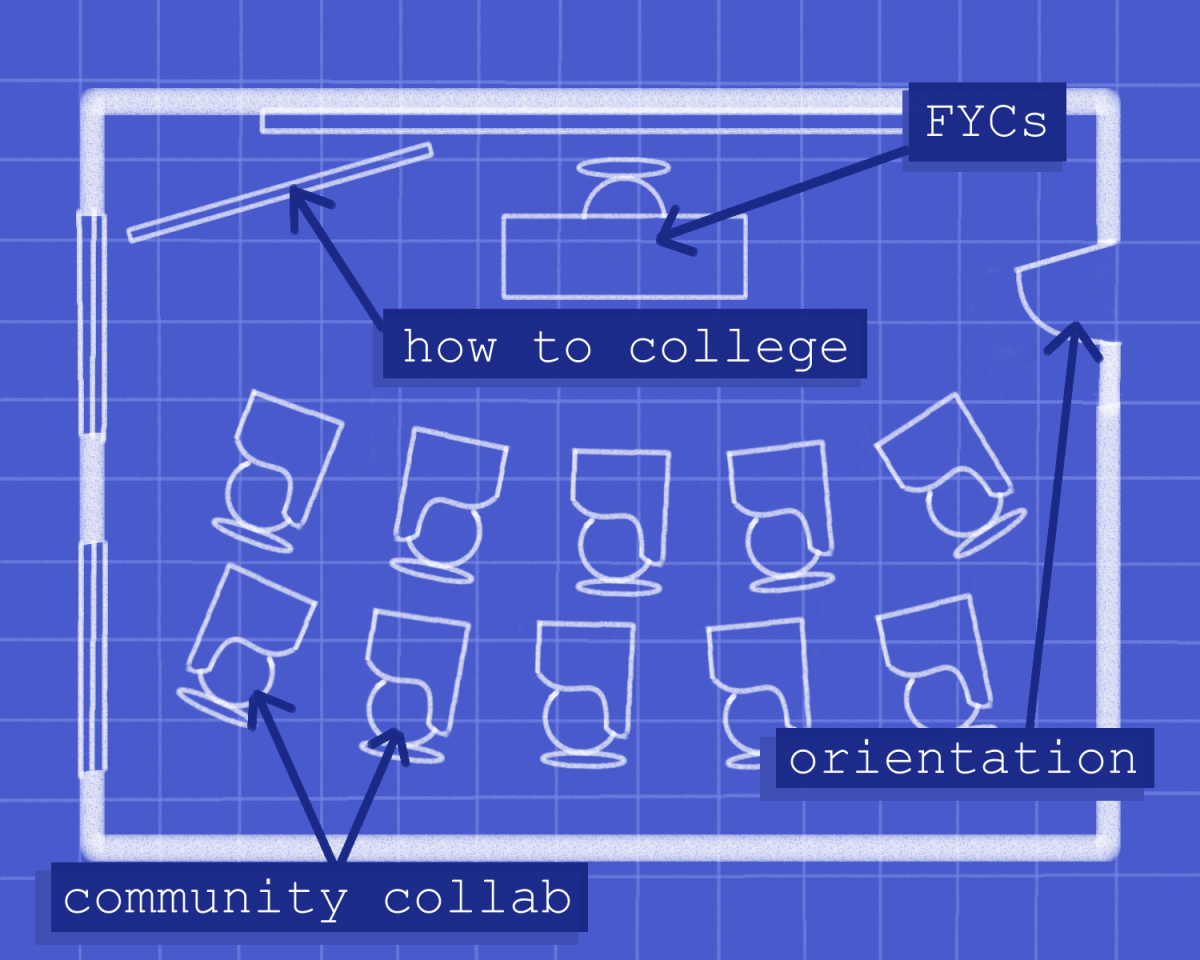Let’s get this out of the way right now: approximately half the population of humans on this planet bleed out their vaginas on a roughly monthly basis. You know someone who, at their time of death, will have spent a total of almost 10 years of their life shedding the lining of their uterus. Despite the popularity of this fun and fashionable menstrual trend, periods are still taboo and weird and icky to an overwhelming amount of people in the United States and worldwide. Why? Most of us don’t look at other types of blood with the same disdain with which we view menstruation. Many people who love vaginas (on themselves or others) don’t adore them to the same extent when they’re on the proverbial uterine wash cycle. I can’t even begin to tackle the origin of the menstruation taboo in this column, but perhaps this mini-explanation of ovulation coupled with a few interesting pieces of trivia will contribute, in my own small way, to the demystification of menstrual periods.
We’ll start basic. Menstruation occurs when, in the absence of a fertilized egg, the uterus receives signals that its nutrient-rich lining can be shed. The lining exits through the cervical opening and travels down out of the vagina, eventually making it out into the world and into our gardens. Mostly kidding, but there is an increasing community of people who use their period blood as fertilizer for their gardens. Just another way to recycle, people! To many of you, the monthly shedding of the uterus won’t be new information. Let’s kick it up a notch. If someone offered you $50 to accurately explain the process of ovulation, would you win the money? Given the pathetic state of sexual education in this country, I would venture a guess that many of you would walk away penniless. Let’s fix that!
The ovarian cycle occurs over a period of approximately 28 days and consists of two halves: the follicular phase (first 14 days) and the luteal phase (last 14 days). In the first week of the cycle, menstruation occurs while the uterine lining sheds, as described above. Estrogen, inhibin and progesterone levels remain roughly plateaued while the ovarian follicle begins its maturation cycle. Ovarian follicles are sacs in the ovaries that hold oocytes (immature eggs), and though many follicles can begin maturation each cycle, only one will generally release a mature egg during ovulation. The other follicles disintegrate in a degenerative process known as atresia. In the second quarter of the cycle, estrogen levels begin to climb as the follicles mature and prepare to release the mature egg. Menstruation has finished and the uterine lining begins to proliferate and thicken in preparation for the possible incoming fetus.
At the start of the luteal phase, levels of the luteinizing hormone (LH) skyrocket to force the follicle to release its precious ovum. Estrogen levels fall while progesterone levels rise as the uterine lining gets thicker and thicker. The egg leaves its parent follicle and begins its brand new life in the fallopian tube, waiting for its true love to make the treacherous journey through the acidic vagina and into its eager arms. The mature egg can remain in the fallopian tube for approximately three to four days at which point it exits the body with the uterine lining if unfertilized, undoubtedly singing heartbroken Alanis Morisette songs and swearing off romance.
After ovulation, LH levels return to normal as the follicle begins development into the corpus luteum, which produces progesterone levels necessary to the creation of the uterus lining, which would nourish a fetus if fertilization occurred. At 21 days into the cycle, the mature corpus luteum enjoys a brief life of roughly three days before degenerating into the corpus albicans in a process called luteolysis. Progesterone levels fall after its main source degenerates, and lo! The menstrual cycle begins and the process repeats itself. If fertilization does occur, the new zygote moves from the fallopian tube to the uterine wall in a journey lasting approximately seven to nine days. This implantation in the wall of the uterus will jumpstart the creation of the placenta, which will take over nutrient and progesterone-producing duties at approximately the second trimester of pregnancy. Menopause occurs when the body stops producing estrogen and other hormones, so the process of ovulation no longer takes place and periods stop.
Now, you know the science behind CycleBeads, contraceptive pills and other methods of birth control. A person has the highest chance of getting pregnant between 11 and 15 days after the first day of menstruation. This is the most probable period of ovulation, which means that the egg will be primed for fertilization in the fallopian tube. Hormonal intrauterine devices (IUDs) prevent pregnancy by releasing an artificial substitute for progesterone, which prevents ovulation so the egg is not available for fertilization in the fallopian tube. Emergency and daily contraceptive pills work to prevent pregnancy by delaying or disrupting ovulation, similar to IUDs. Some emergency contraceptives also prevent implantation of the egg in the uterus by irritating or otherwise altering the lining.
Those are the basics! Hopefully the entire process is a little less mysterious now, and you know all the cool stuff you or your friends’ bodies are capable of. Let’s end this week’s column with a smattering of trivia for the Jeopardy!-inclined. The only animals that undergo menopause are elephants, humpback whales and humans. At birth, people with ovaries have approximately two million eggs, but only around 500 will ever be released. Human egg cells are about 0.1mm in diameter, which is visible to the naked eye and about the same width of a thick piece of human hair. Finally, our ancestors’ sense of time may have been influenced by the cyclical nature of menstruation, which would explain the early preference for lunar calendars. Go forth and stop being squicked out by periods, my children.
Questions? Comments? Insults? Email me at [email protected], but remember that it won’t be anonymous.







Christopher Gill • Sep 12, 2019 at 12:09 am
These are really fantastic ideas in concerning blogging. You have touched some pleasant points here. Any way keep up wrinting.
Olivia Stewart • Sep 10, 2019 at 5:39 pm
you got a very excellent website, Sword lily I discovered it through yahoo.
John Cornish • Sep 7, 2019 at 11:57 pm
Wow! This could be one of the most beneficial blogs we have ever come across on thesubject. Actually fantastic post! I am also a specialist in this topic therefore I can understand your hard work.